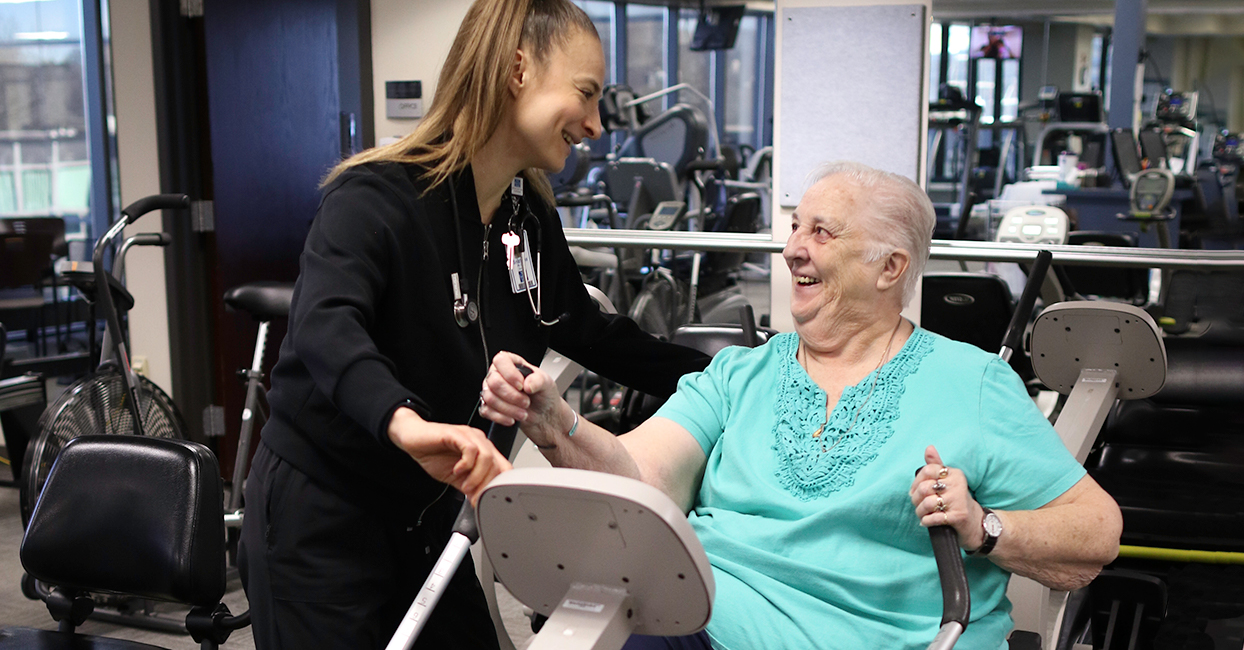
Brent Ault’s lifelong commitment to test his mind and body is unwavering. He wrestled in high school, took combative training as a military police officer in the Army, and has since been a practitioner of jiujitsu. Brent found his unyielding determination tested more than ever during a January 2021 jiujitsu training trip in Costa Rica. A slight shift in his position during a roll left him with little use of his arms and legs.
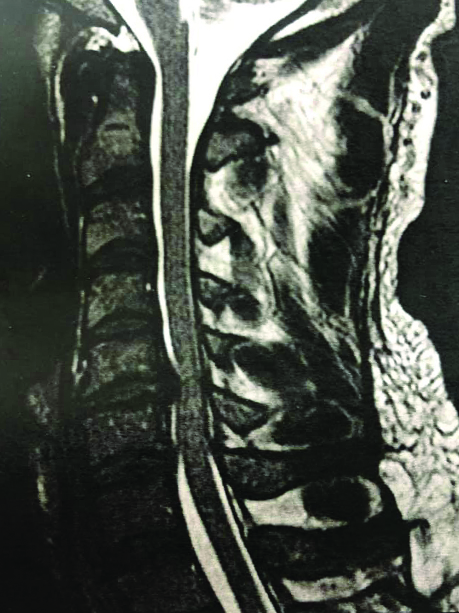
Upon his return home to Kansas City, Brent, who is 36, learned he endured an incomplete injury to his spinal cord. “With this type of injury, incomplete refers to how damage or compression to the spinal cord disrupts the brain’s ability to transmit signals below the injury site,” said Ammar Hawasli, MD, PhD, a board-certified neurosurgeon with Meritas Health Neurosurgery.
Dr. Hawasli diagnosed and performed spinal surgery on Brent at North Kansas City Hospital. “The moment Brent walked in the door, I was certain he suffered a very serious spinal cord injury by the way he moved.”
Dr. Hawasli likened the injury to a car’s electrical circuit having a chafed wire. “The car will run, but the air conditioning, headlights or windshield wipers only work intermittently,” Dr. Hawasli explained.
Brent’s disc had herniated and was causing pressure on his spinal cord. While he could still walk, he couldn’t fully use his arms and legs.
Dr. Hawasli advised that Brent undergo an anterior cervical discectomy and fusion within days. During the nearly 3-hour surgery, Dr. Hawasli makes an incision in the front of the neck, removes the injured discs and bone spurs, and fuses the bones together to take pressure off the spinal cord. Brent went in for the procedure February 12, 2021.
In Brent's Own Words
"When you have an injury like mine, there is light at the end of the tunnel."
Brent shares his inspirational story of how hard work got him back to activities he loves.
Following the Injury
The awkward move during training in Costa Rica left him feeling weak. He chose to take a break from his training and sit out the rest of his jiujitsu session.
“I felt off, but I wasn’t in any pain,” Brent explained. “Later, I had wobbly legs, but I thought I was dehydrated from training twice a day in Central America.”
By the next evening, he could barely move. “I felt confident things were not serious because I had no pain,” Brent said. “I thought I had a pinched nerve.”
By the time he returned home about a week later, he still had trouble with movement, and he started having urination issues. Brent looked into IV therapy and talked with a chiropractor about possible next steps. His chiropractor referred him to a primary care doctor, who ordered an MRI that revealed his injury and then referred him to Dr. Hawasli.
“It was eye-opening,” Brent said. “All of a sudden, I went from having weird movements to needing surgery right away.”
Not Taken Out
Just four months prior to the injury, Brent lost his dad who raised him as a single father. Brent’s greatest support system was gone, and he was about to have surgery on his spine. Brent is headstrong, so nothing was going to stop him.
His positive outlook and determination to reach his goals did not go unnoticed. “Brent is so fit that our physical therapy team was rehabilitating him like a professional athlete,” Dr. Hawasli said. “Brent’s age, fitness level and motivation to reach his goals allowed him to have an impressive recovery.”
With more than 10 years in the fitness industry, Brent also dedicated himself to a corrective fitness plan, including strengthening his legs and working on his muscles’ elasticity through hot yoga. Within six months, he got back into jiujitsu training. Soon after he started, Brent shifted his focus to a different goal — climbing the Seven Summits, the highest mountains on Earth.
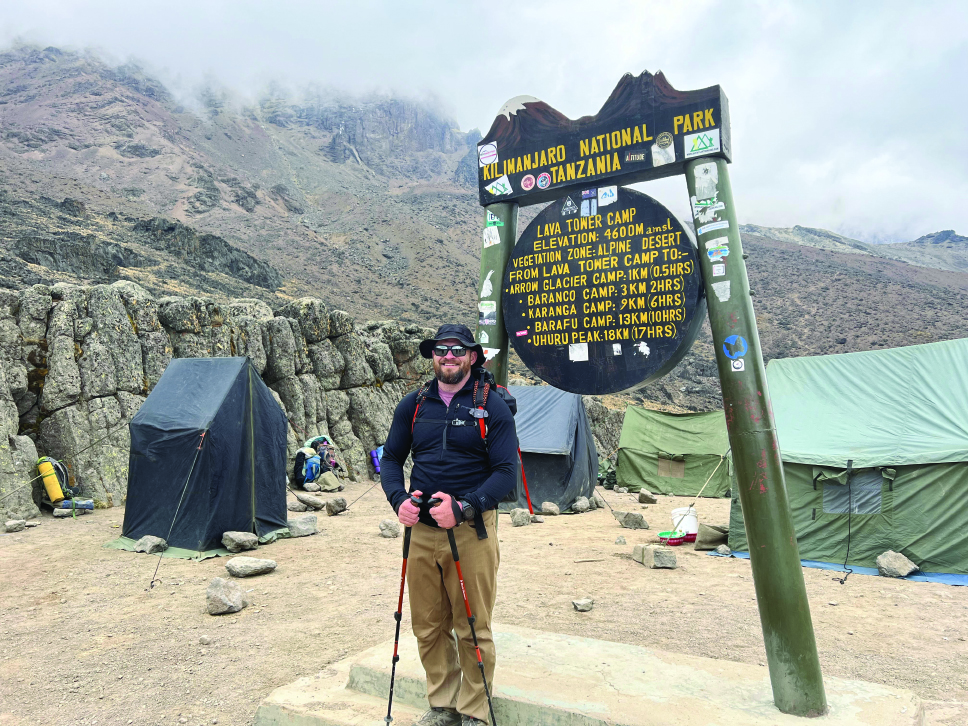
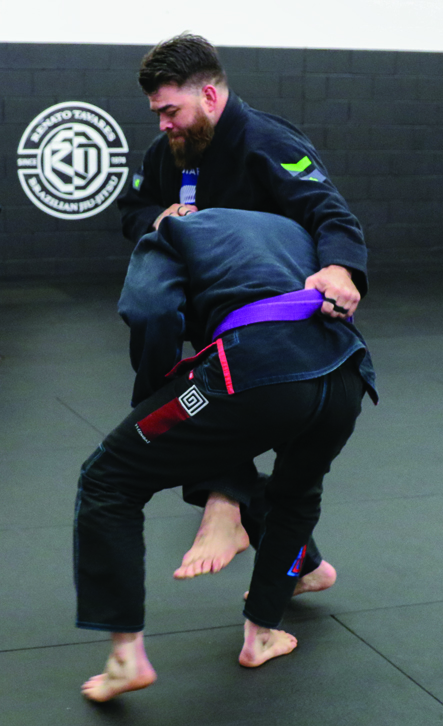
Next Adventure
In October 2021, Brent climbed 19,341 feet to the top of Africa’s Mount Kilimanjaro. In August 2022, he plans to climb the highest peak in Europe — Mount Elbrus in Russia. He is training to be the first person with an incomplete spinal cord injury to climb to the top of the world on Mount Everest in the Himalayas.
Although his injury caused a massive shift in his life, Brent continues to challenge his mind and body to greater goals. “I still have intense surges of energy that travel up my spinal cord when I sneeze. And I also have muscle spasms and tightness, but I am gaining control,” Brent explained. “When you have an injury like mine, there is light at the end of the tunnel. Be patient. There is hope.”
Explore More
Learn more about neurosurgery services at North Kansas City Hospital.
Related Articles

March 8, 2020
3 Sneaky IBS Triggers
For people with irritable bowel syndrome, spring may spark a flare-up in symptoms

May 30, 2024
5 Nutrition Tips for a Healthier Lifestyle
Healthy eating and proper nutrition play a big part in maintaining good health. Here's how to improve your nutrition habits.
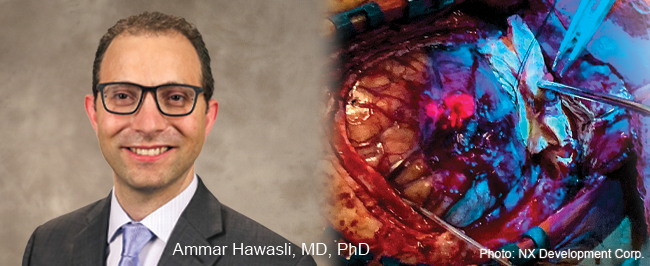
July 7, 2021
5-ALA Fluorescence Guides Neurosurgeons for More Complete Resections
Neurosurgeons Ammar Hawasli, MD, PhD, and Stephen Reintjes Jr., MD, with Meritas Health Neurosurgery, are now using a progressive treatment that allows for the more precise removal of malignant gliomas and glioblastomas.

